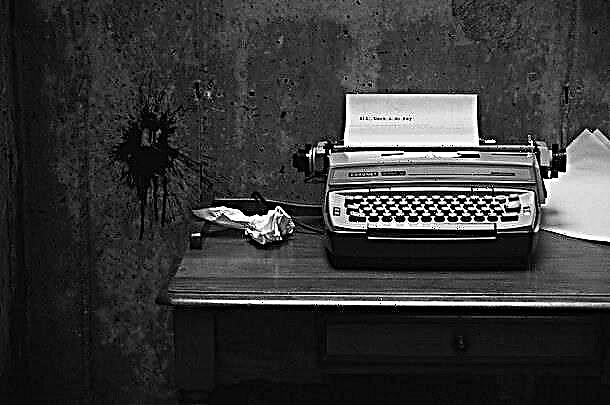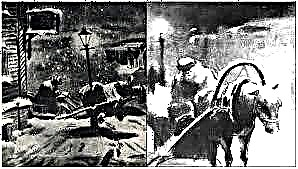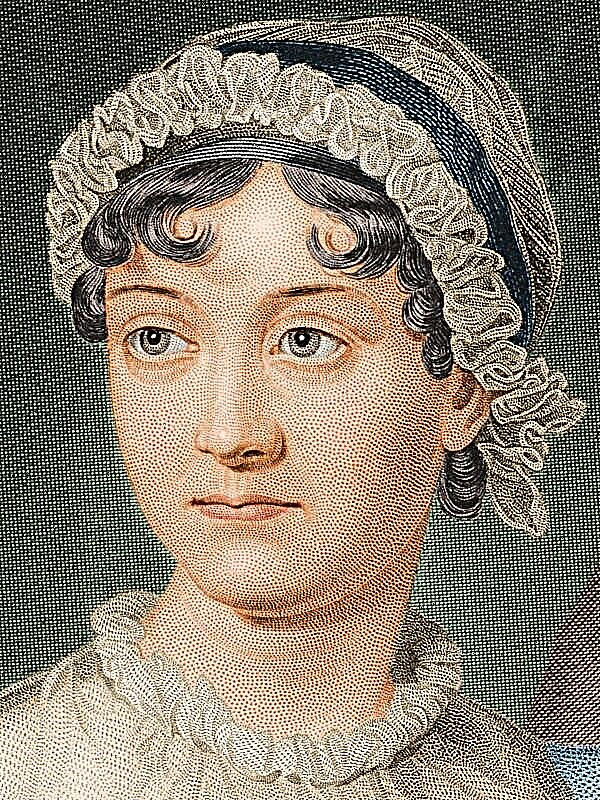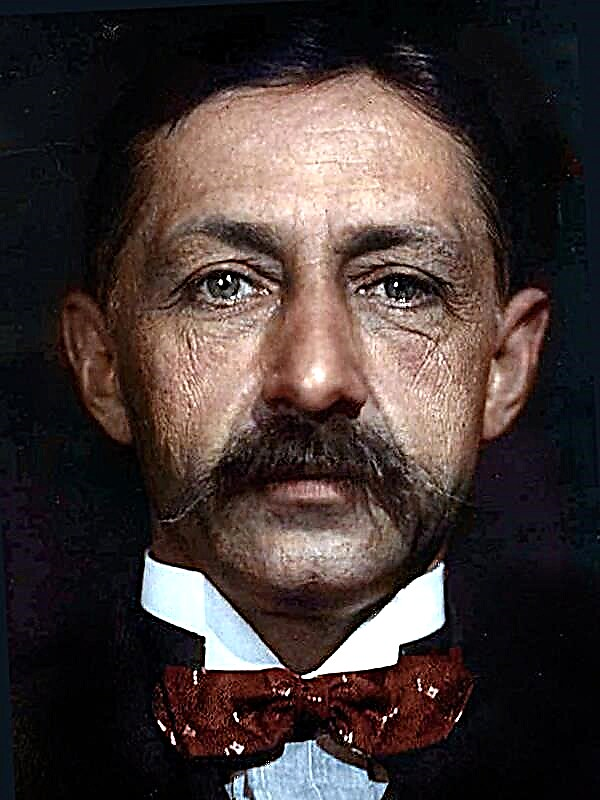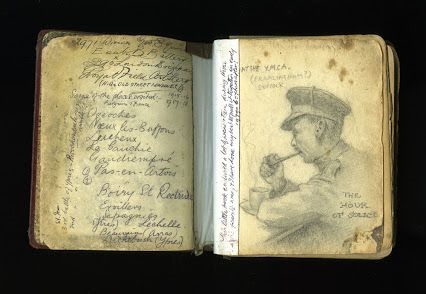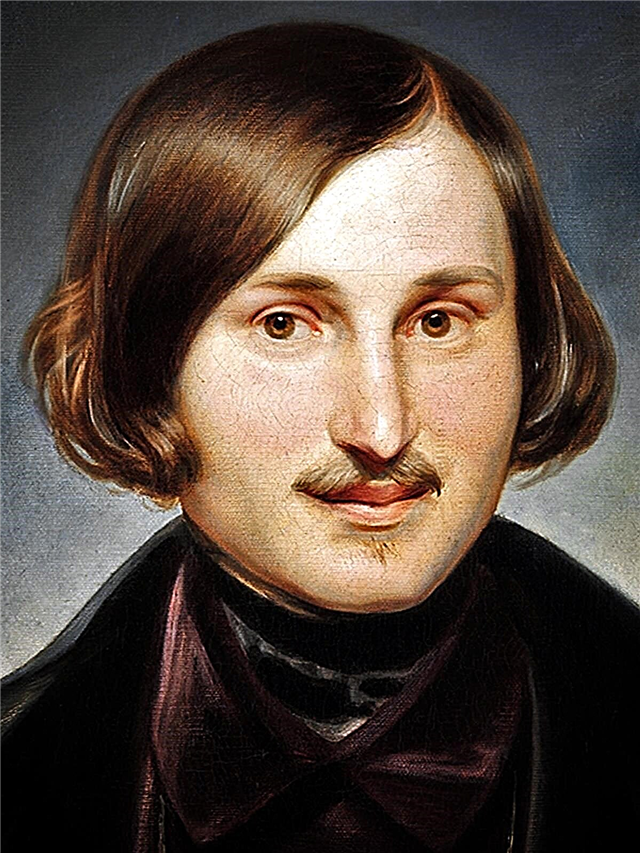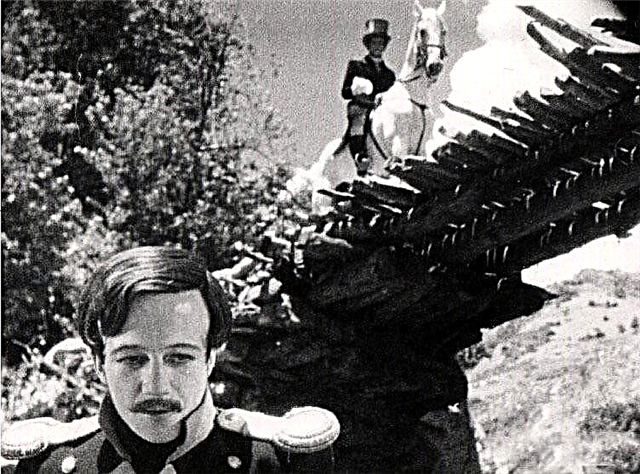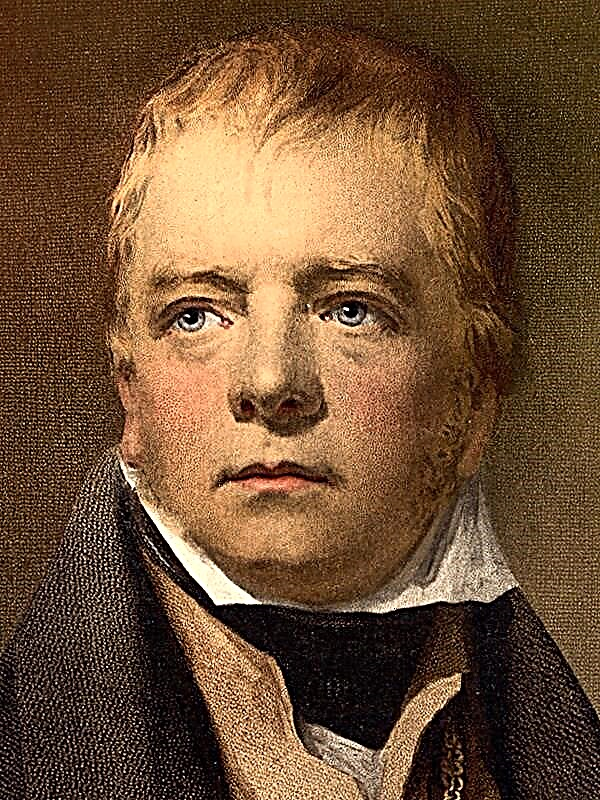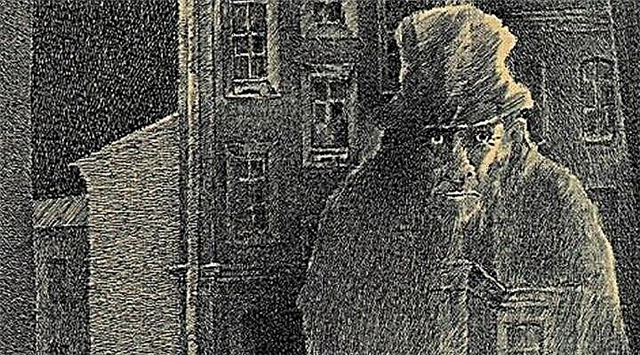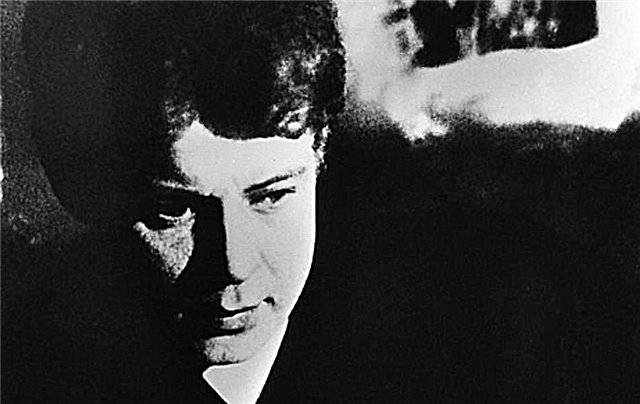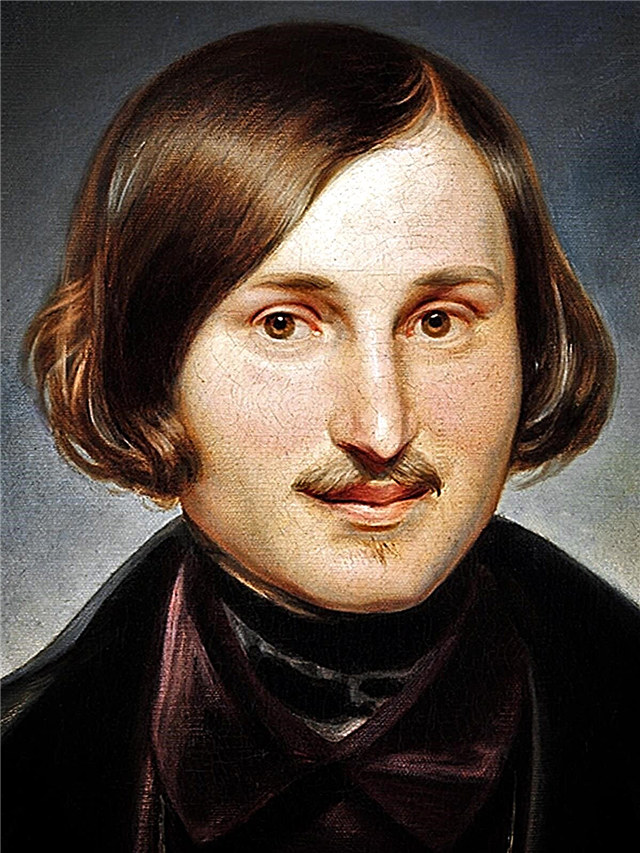A. Pushkin was haunted by thoughts about the future of Russia, which was connected with its historical past with “strong threads”. Studying the history of his country, the writer perfectly understood what Peter the Great played an invaluable role in the formation of the state. The emperor dreamed of the prosperity of Russia, that it took its rightful place among other European powers. Pushkin devoted the poem “Poltava” to the brave, brave, hardworking sons of Russia, who sacredly fulfill their duty to the Fatherland. The work is imbued with the spirit of high patriotism and freedom.
History of creation
The poem was written in 1828. A separate publication is published in March 1829. Pushkin devotes a poem to Maria Volkonskaya, a brave woman who selflessly went to Siberian exile following her Decembrist husband.
The title of the work reflected the historical event that occurred on June 27, 1709. Having titled the poem “Poltava”, the author dedicates it to Russian soldiers who have performed a feat of arms for the sake of a brighter future for their homeland.
One of the sources of the book’s design was the poem of K.F. Ryleyev "Voinarovsky." Pushkin highly appreciated this work of the Decembrist poet. Chilling pictures of executions and rebellions, overshadowing the first years of the reign of Peter, the long-suffering fate of Kochubey - all this could not leave the writer indifferent.
The creation of the poem is preceded by the author’s appeal to numerous historical sources, among which a significant place is occupied by the description of the “Svej” (Swedish) war. The book was compiled by the king’s close associates based on his reliable materials. Pushkin studies the body of materials about Peter in the “Acts of Peter the Great” by the late 18th century historian Golikov, as well as the work of Bantysh-Kamensky on the history of Ukraine.
However, Alexander Sergeevich, being a writer, does not reflect all the “documentary” instructions of scientists in the work. So, he combines the three denunciations of Kochubey to Mazepa into one. The writer creates the image of a Cossack in love, about which there is no information in the documents. Pushkin turns the historical Matrena Kochubey into Maria. These changes, made by a brilliant artist, enhance the expressiveness of the poem.
Genre, direction, size
"Poltava" - the first historical and heroic tragedy of Pushkin. The author uses many elements that convincingly testify to the realism of the genius poem: the historically correct depiction of the details of the past, a wide range of characters, each of which has its own meaning, a deep disclosure of the inner world of the characters, the proximity of the language to folk speech.
The poem is written by four-foot iamba. The narrative includes portrait sketches of Maria and Mazepa, describes landscapes, there are scenes of interrogation and execution, a brilliant picture of the Battle of Poltava is “deployed”. Pushkin supplements his story with historical explanations and digressions about the political moods of society at the beginning of the 18th century.
Composition
The composition of the poem, for all its complexity, is striking in its clarity, consistency and coherence. Thoughts about the homeland and the fate of people unite separate parts of the poem: the romantic story of the “criminal” daughter, an instructive story about unnecessary pleasure, a harsh story about a bloody criminal and a solemn song about a patriotic hero.
"Poltava" is imbued with a deep spirit of nationality, both in content and in the style of the work. Majestic intonation prevails. The powerful expressiveness of the poem is enhanced by the variety and quick change of various types of sentences. They either unfold in long periods, acquiring the character of a tribune, excited speech, or are compressed into short phrases. In the poem, lyrically colored appeals to the heroes (“Maria, dear Maria ...”) and everyday episodes with colloquial phraseology stand out.
Essence
1709 year. The action takes place in Ukraine in the city of Poltava. Kochubey, the general judge, has a beautiful daughter, Maria, whom he is very proud of. Mazepa, an elderly godfather of a girl, secretly has warm feelings for her. After a while, she secretly takes her from her father’s house. Kochubey, unable to forgive the insult inflicted on his family, writes a denunciation to the hetman Peter I. However, the tsar does not believe the words of his disgraced father, and Kochubey is executed along with his faithful follower Istra.
The work has not only a romantic, but also a historical storyline. Mazepa, having concluded an agreement with the Swedish king Charles XII, wants to separate Ukraine from the Russian state. June 27, 1709 there is a large-scale Poltava battle between the troops of Peter and Charles XII. Peter the Great wins the battle, and Mazepa, together with the king, is forced to flee, thereby admitting his defeat. In more detail, the main events from the book we described in Reader Diary Summary.
The main characters and their characteristics
- Ivan Stepanovich Mazepa - depressed Ukrainian hetman for years. Smart, cold-blooded and cunning. A rebellious and insatiable soul lives in it, giving birth to an indefatigable criminal heat in the heart. The traitor, deep-rooted in deceit and atrocities. The poet, with the strictness of a patriot, severely lists the vices of the fallen hetman: spite, vengeance, hatred of people, lack of gratitude. Mazepa easily sheds human blood, each time eradicating the last grains of pity and compassion in her heart. There is no homeland for him; he never forgets betrayals, not only in his soul, but in practice. He never forgets and does not forgive insults inflicted on him.
- Maria is the daughter of Kochubey. Black curls frame her face, her eyes shine with purity, and the camp strikes with harmony. Tender and reasonable. It is modest. The girl has a courageous character, otherwise she could not go against the will of her father and mother. Fascinated by the military glory of the hetman, whose songs she loved to sing. Until the last moment, I did not realize what a terrible act had committed. She was wrapped in a love dope, Mazepa's sweet speech penetrated the heart, causing her mind to fall asleep. However, the awakening was not long in coming. Having witnessed the death of her father, the girl goes crazy. Grief conquers the mind.
- Vasily Leontyevich Kochubey - Ukrainian general judge. Brave and courageous. Honor and love for the motherland are not alien to him. Deeply offended by Mazepa when he abducts his daughter. A thirst for revenge finds refuge in his heart. After Peter I does not believe his denunciation of the hetman, he carries with dignity the punishment for slander. First, he is brutally tortured, and then executed in front of hundreds of spectators.
- Peter the Great - The first All-Russian Emperor. A. Pushkin in each of his works dedicated to Peter, illuminates various aspects of his appearance. In the poem "Poltava", the king acts as a warrior, commander and patriot. The author paints Peter's appearance in the style of heroic portraits of the 18th century: shining eyes, terrifying face, quick movements. Portrait sketch corresponds to the spiritual appearance of the hero. Peter appears in the poem as the organizer of the military power of Russia. He, like lightning, rapidly appears on the pages of the work. His thoughts are occupied with thoughts about the homeland and its welfare.
- Karl XII - the swedish king. Brave, but ambitious. He behaves frivolously, entering into a skirmish with the Cossacks on the eve of the Poltava battle. As a result, he receives a severe leg injury that does not allow him to participate in the battle.
- Love - the imperious wife of Kochubey. He shares the views of her husband and strongly supports him. It burns with the fire of passion, pride and thirst for justice. Impatient and smart.
- Philip Orlik - General clerk, hetman businessman. The owner of the "stone" heart. Tough, prudent. It takes pleasure in cracking down on the enemies of Mazepa. After the death of the "master" receives from Charles XII the empty title of Little Russian Hetman.
Themes and Issues
- War theme It is revealed in the work brightly and vividly. The magnificent picture of the Poltava battle reaches its highest sound. Fragments of the battle follow one after another in a certain sequence: the beginning of the battle, the victory over individual enemy units, the appearance of Peter and the “carried” Karl, and, finally, the decisive moment of the battle and the flight of the Swedish army. The accuracy and visibility of the description achieve the effect when the reader “feels” himself as a witness to the ongoing battle.
- Love theme sounds throughout the poem. For all his slyness, Mazepa is full of sincere love for Mary. But the cunning of an ambitious man does not yield to senile love. The evil designs in the hetman are stronger than his feeling for the girl. He lies to her when he says that he loves her more than power and glory.
- Theme of generosity and mercy. Having won the battle, Peter does not kill his opponents. He "caresses" the captives and raises a healthy cup for them.
- Pushkin uses expressive contrast to create two guises: Peter and Charles. During the battle of Poltava, mighty and joyful, Peter sweeps in front of the regiments, and the pale, motionless Karl, who is carried on a stretcher, is wounded in a useless battle with the Cossacks. The artistic technique of the antithesis helps to reveal the poet’s thought that the victory of the Russians is not an accidental luck. It was predetermined by the victory of high ideas for which Peter fought.
- The problem of spiritual blindness is one of the key in the poem. Maria loves Mazepa. She sacrifices everything for the sake of the old hetman. She has to make a terrible betrayal, leaving her father and mother. The power lover, like a tempter, fascinates the heart of a naive girl. He literally wrests from the unfortunate daughter a fatal "permission" to execute his father. Maria does not understand the sinister meaning of the terrible question: “Is father or spouse dearer to you?”
- The problem of betrayal and vanity. Mazepa betrays not only her former friend by abducting her goddaughter, but also trampled Peter's confidence in the earth, trying to separate Ukraine from the Russian Empire.
- Can a glimpse appear in a fallen soul of conscience and sincere remorse? Despite all his atrocities, Mazepa still feels embarrassed at the thought of what kind of suffering he is preparing for Mary. Execute father in response to the tender and sincere feelings that the girl has for him! No wonder the hetman thinks that the stars of the night are looking at him with accusatory eyes, and that poplars, like judges, are whispering about him. He is tormented by a terrible emptiness, returning from the execution of Kochubey. Seeing the judge’s yard empty through his fault, he feels a sense of fear and trembles, as if under an ax, under the threatening finger of a mad Mary.
- The problem of blind gullibility. Pushkin shows Peter not only as a Poltava hero, but also as a gullible and simple-hearted person. Unaware of a dirty trick, he is convinced of the sincerity of Mazepa. The king does not believe in treason because he did not change. But when the truth becomes known, Peter seeks to correct his mistake by calling on the Iskra and Kochubey families, shedding tears with them and showering them with favors.
The main idea
In the poem, A. Pushkin praises the power of Russia and calls for exploits in the name of the country's happiness. The main idea of the author is that no ups and downs, either external or internal, can destroy the unity of the multinational Russian state. This is because in Russia there are always more devoted and honest people who are more likely to die than to renounce their truth.
Also, the meaning laid down by the author suggests that the key to preserving the country is respect for the family. It is the foundation of the state. When enmity settles in the house, among relatives and friends, the basis of the foundations is destroyed. Anyone who is not sorry to break the blood ties of his daughter and parents will not stop at any crime. Therefore, each person must responsibly and honestly build relationships with his environment, otherwise his moral decline is a foregone conclusion.
What does it teach?
The poem teaches love for the motherland. Only reliable and faithful defenders can repel an enemy attack and keep the Russian land intact. Love for the homeland begins with the family, so everyone should protect their home.
The author calls not to forget that even the most sincere followers after a while can “change the mask” and betray a loved one without any twinge of conscience. The writer is convinced that one should not neglect the stepfather’s house and relatives, thereby causing terrible suffering to them.
Criticism
"Poltava" is one of Pushkin's greatest works. However, most critics have seen the poem negatively. They without exception claim that Mary cannot love an ambitious old man. Mazepa himself is called the "evil fool." Comparisons are becoming popular in magazines that Alexander Sergeyevich, having written such an innovative work, is defeated, like Karl XII on the battlefield.
Pushkin is critical in surprise. He is upset that Poltava is not having the due success. However, critics simply do not understand the originality of the poem, the depth of the poet’s meditation and the nationality of his style.
V. Belinsky considers Poltava a successful work. He subtly notes that the poem has a lot of originality and originality. However, not everything satisfies him. The reviewer considers Pushkin’s mistake that the first two songs are occupied by romantic events, while Peter and the Battle of Poltava are described only in the third song.

